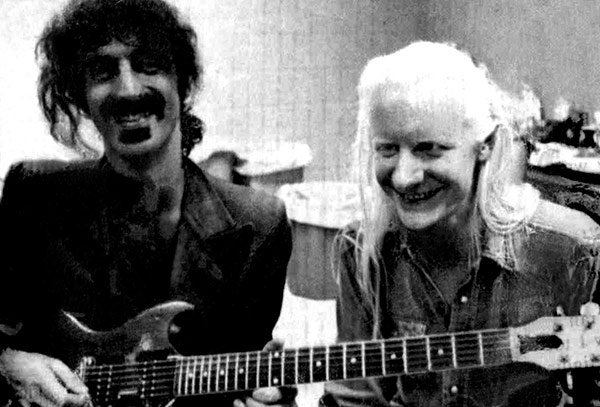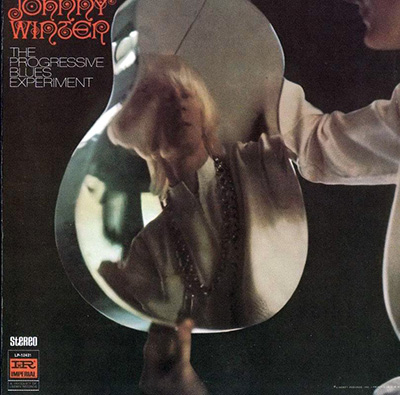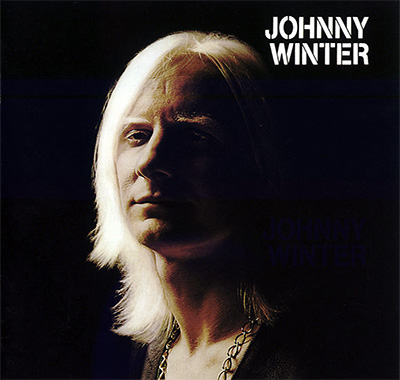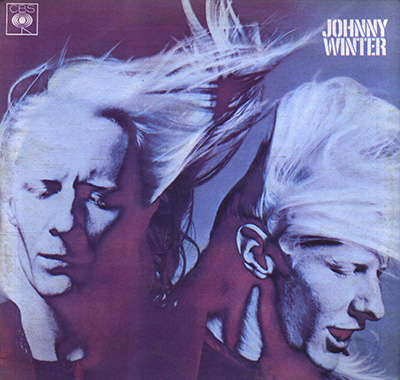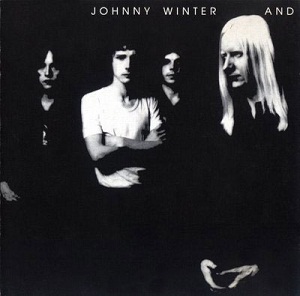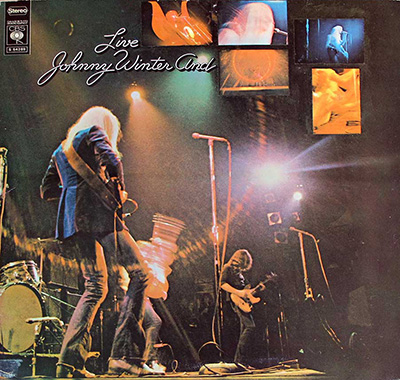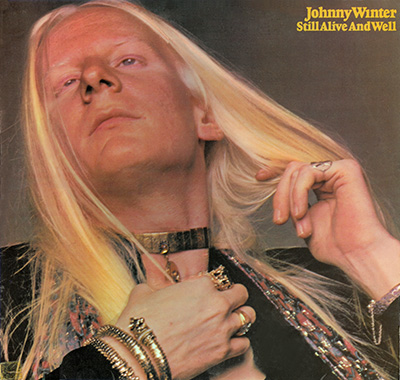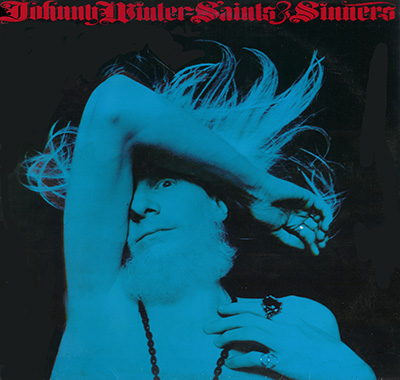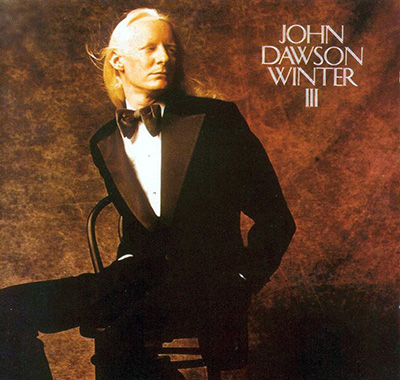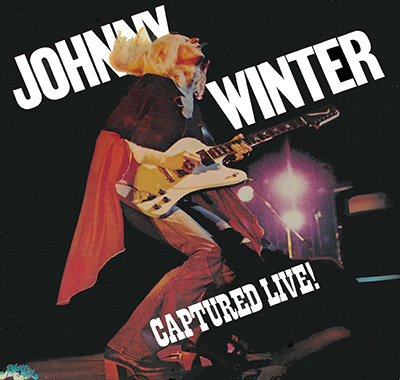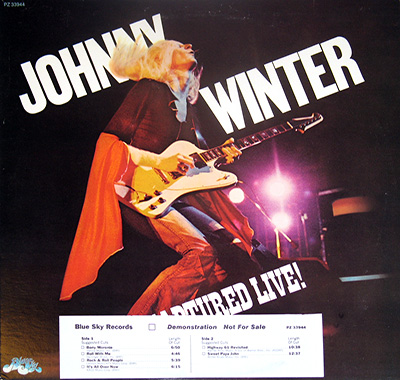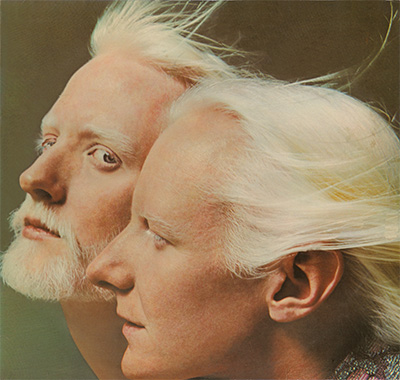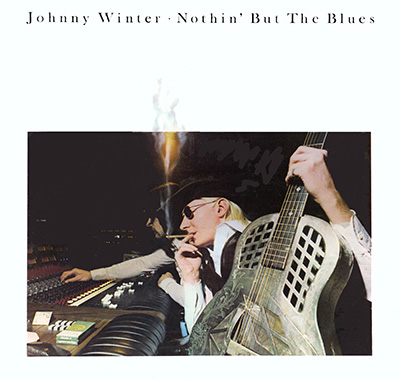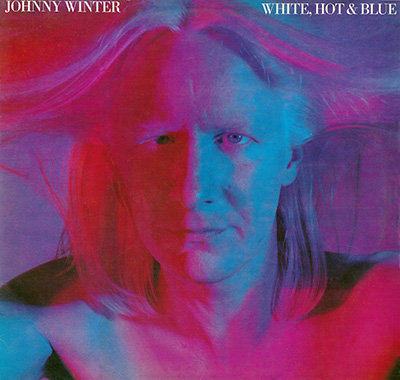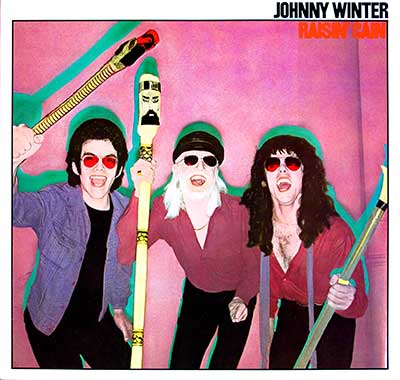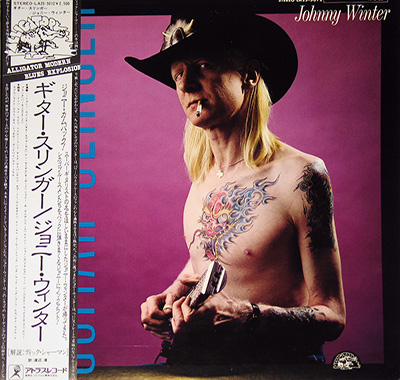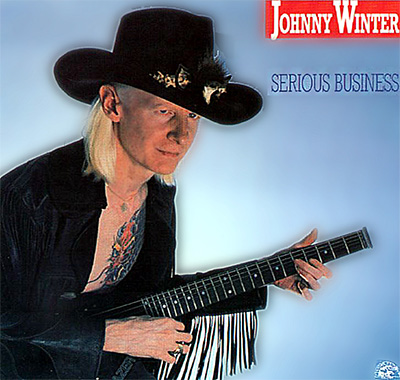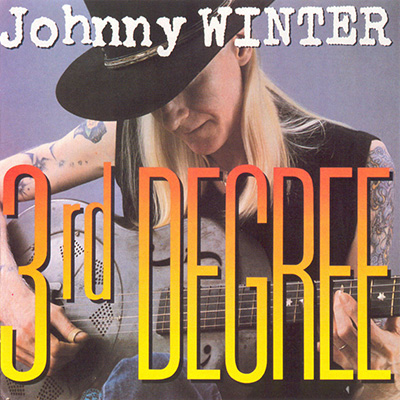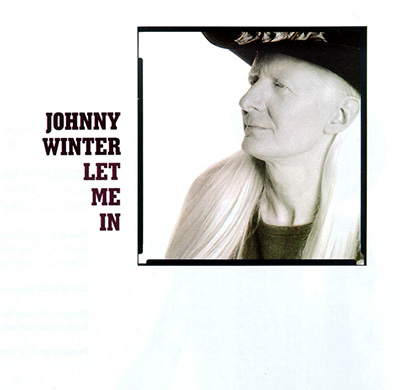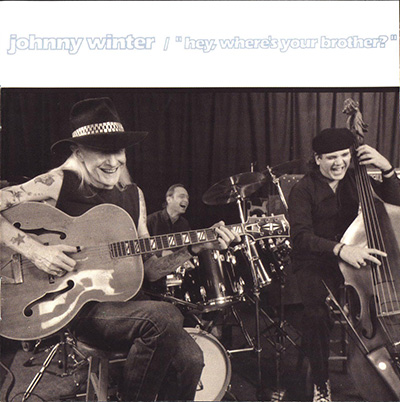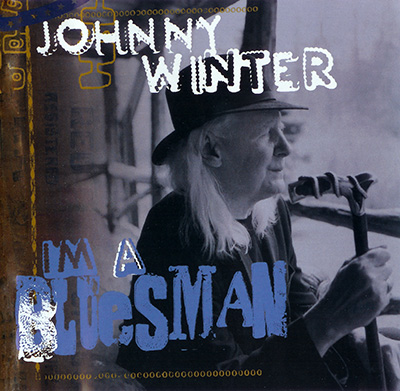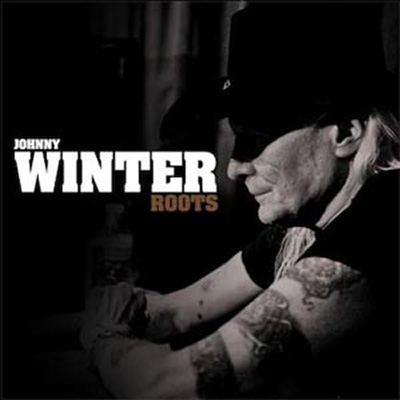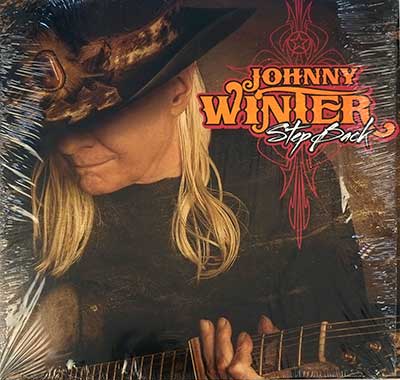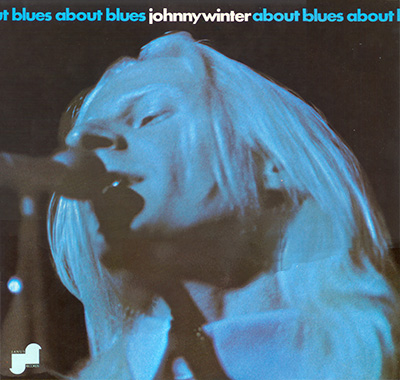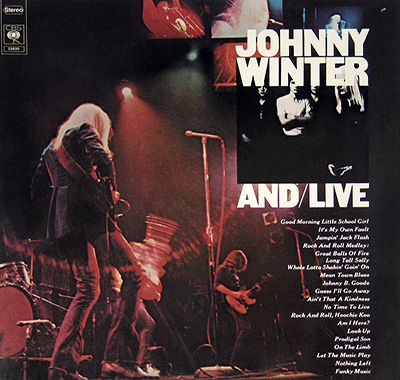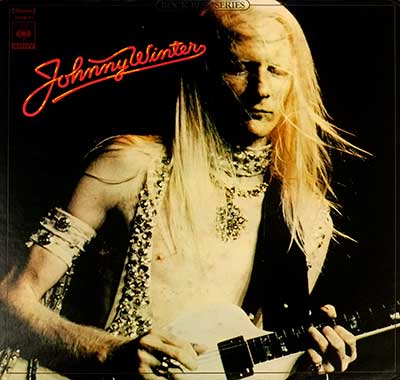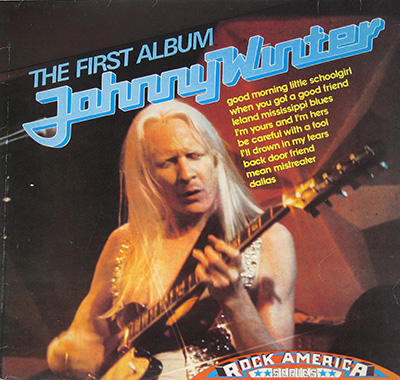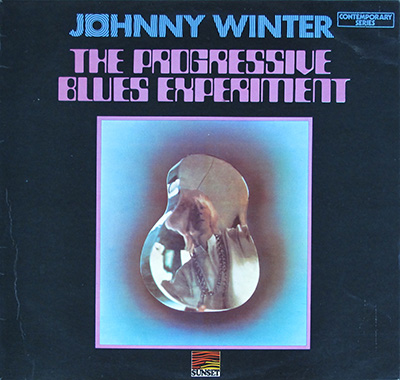Allein in optischer Hinsicht war Johnny Winter in der Blues-Welt eine auffällige Erscheinung, als er Ende der 60er in Erscheinung trat: eine dürre Gestalt, mit zahlreichen Tattoos bedeckt, fast weiße lange Haare, dazu ein breitkrempiger Hut auf dem Kopf. Und da waren natürlich noch seine extrem flüssige Art des Gitarrenspiels und die energetischen Interpretationen klassischer Blues-Standards, die die Fachwelt & Fans aufhorchen ließen - bis heute.
Von
Arnd Müller-Wachowsky
---
Winter gehörte stets zu den offeneren Bluesern und übertrat als einer der ersten vom Blues kommenden Musiker die Grenzen zum Rock. Heute ist dies sicherlich nichts Außergewöhnliches mehr. Das Genre Blues-Rock besitzt mittlerweile eine über 30jährige Tradition, die Musiker wie Rory Gallagher, Stevie Ray Vaughan, Jeff Healey und eben Johnny Winter jeder auf seine Art geprägt haben. Und es ist für junge moderne Blues-Gitarristen, z.B. Jonny Lang, Kenny Wayne Sheppard und Ana Popovic fast schon eine Selbstverständlichkeit, Rock-Elemente (oder auch andere Stilistiken wie Funk) in den guten alten Zwölftakter zu integrieren.
Irgendwann gründete er mit seinem drei Jahre jüngeren Bruder Edgar ein Duett und die beiden begannen im Stil der Everly Brothers Musik zu machen. Mit ihren Songs gewannen sie Talentwettbewerbe und traten bei einem lokalen Fernsehsender auf. Und irgendwann kam der Rock ‘n’ Roll: Little Richard, Fats Domino, Carl Perkins und natürlich King Elvis waren die Heroes der 50er, die auch die Winter-Brüder nachhaltig prägen sollten. Und schließlich hörte Johnny erstmals Blues in der „Bon Ton Roulet Show“ von DJ Clarence Garlow des Beaumonter Radiosenders KJET. Mit 14 stellte Johnny mit seinem Bruder Edgar (piano & sax) eine Band auf die Beine, die sich „Johnny And The Jammers“ nannte. Ein Jahr später nahm die Formation in den Gulf Coast Recording Studios in Beaumont ihre erste Single auf, die bei dem Houstoner Label Dart Records veröffentlicht wurde. Aber wie das oft mit solchen Frühwerken ist, brachte die Single der Band lediglich auf lokaler Ebene etwas Aufmerksamkeit ein.
Trotz seines Faibles für Rock spielte Johnny Winter seinen Blues immer mit einem ausgeprägten Traditionsbewusstsein. Vergleichbar ist er hier etwa mit den Iren Rory Gallagher, dessen Blues-Wurzeln ebenfalls trotz aller Rock-Energie in seiner Musik immer sichtbar waren (siehe auch Rory-Gallagher-Story in bluesnews 24). Johnny Winter wusste, was er den großen Blues-Ikonen wie Muddy Waters, mit dem Winter später eine innige Freundschaft verband, zu verdanken hatte.
Die Winter-Story beginnt am 23. Februar 1944, als John Dawson Winter III im texanischen Beaumont geboren wurde. Im Alter von fünf Jahren erlernte Johnny sein erstes Instrument, die Klarinette, wechselte ein paar Jahre später zur Ukulele und mit ungefähr zehn Jahren zur Gitarre.
Irgendwann gründete er mit seinem drei Jahre jüngeren Bruder Edgar ein Duett und die beiden begannen im Stil der Everly Brothers Musik zu machen. Mit ihren Songs gewannen sie Talentwettbewerbe und traten bei einem lokalen Fernsehsender auf. Und irgendwann kam der Rock ‘n’ Roll: Little Richard, Fats Domino, Carl Perkins und natürlich King Elvis waren die Heroes der 50er, die auch die Winter-Brüder nachhaltig prägen sollten. Und schließlich hörte Johnny erstmals Blues in der „Bon Ton Roulet Show“ von DJ Clarence Garlow des Beaumonter Radiosenders KJET. Mit 14 stellte Johnny mit seinem Bruder Edgar (piano & sax) eine Band auf die Beine, die sich „Johnny And The Jammers“ nannte. Ein Jahr später nahm die Formation in den Gulf Coast Recording Studios in Beaumont ihre erste Single auf, die bei dem Houstoner Label Dart Records veröffentlicht wurde. Aber wie das oft mit solchen Frühwerken ist, brachte die Single der Band lediglich auf lokaler Ebene etwas Aufmerksamkeit ein.
In jener Zeit wurde DJ Garlow für den jungen Johnny eine wichtige Bezugsperson. Garlow war damals selbst ein aktiver Musiker, der den jungen Winter mit der Beaumonter Musikszene bekannt machte. Außerdem hielt sich Johnny ständig im Raven Club auf, wo er u. a. Konzerte mit Muddy Waters, B.B. King und Bobby Bland sah. Mittlerweile hatte sich Winter selbst einen guten Ruf als Musiker erspielt und er begann in den frühen 60er Jahren für regionale Labels wie KRCO, Frolic,
Diamond
und Pacemaker diverse Singles einzuspielen. 1963 zog Winter nach Chicago, eines der Blues-Zentren schlechthin. Offenbar war die Stadt und seine Musikszene für Johnny allerdings nicht sehr interessant und er kehrte bald darauf wieder in seine Heimat zurück.
Back in Beaumont spielte er die poppige Nummer „Eternally“ ein, zu der Bruder Edgar die Bläser-Arrangements beisteuerte. Das Stück wurde in der Gegend von Texas und Louisiana ein Hit und Johnny wurde mit seiner Band „The Crystaliers“ für das Vorprogramm von den Everly Brothers und Jerry Lee Lewis engagiert. Mit „Black Plague“ rief Winter eine neue Band ins Leben, bei der neben Bruder Edgar noch Ikey Sweat (d) und Norman Samaha (b) mitspielten. In dieser Besetzung tourte die Gruppe zweieinhalb Jahre durch den Süden der USA, bis die Musiker, von Houston umgezogen, wo sie 1967 als Haus-Band des Act III Club engagiert wurden.
Winter gehörte stets zu den offeneren Bluesern und übertrat als einer der ersten vom Blues kommenden Musiker die Grenzen zum Rock. Heute ist dies sicherlich nichts Außergewöhnliches mehr. Das Genre Blues-Rock besitzt mittlerweile eine über 30jährige Tradition, die Musiker wie Rory Gallagher, Stevie Ray Vaughan, Jeff Healey und eben Johnny Winter jeder auf seine Art geprägt haben. Und es ist für junge moderne Blues-Gitarristen, z.B. Jonny Lang, Kenny Wayne Sheppard und Ana Popovic fast schon eine Selbstverständlichkeit, Rock-Elemente (oder auch andere Stilistiken wie Funk) in den guten alten Zwölftakter zu integrieren.
Irgendwann gründete er mit seinem drei Jahre jüngeren Bruder Edgar ein Duett und die beiden begannen im Stil der Everly Brothers Musik zu machen. Mit ihren Songs gewannen sie Talentwettbewerbe und traten bei einem lokalen Fernsehsender auf. Und irgendwann kam der Rock ‘n’ Roll: Little Richard, Fats Domino, Carl Perkins und natürlich King Elvis waren die Heroes der 50er, die auch die Winter-Brüder nachhaltig prägen sollten. Und schließlich hörte Johnny erstmals Blues in der „Bon Ton Roulet Show“ von DJ Clarence Garlow des Beaumonter Radiosenders KJET. Mit 14 stellte Johnny mit seinem Bruder Edgar (piano & sax) eine Band auf die Beine, die sich „Johnny And The Jammers“ nannte. Ein Jahr später nahm die Formation in den Gulf Coast Recording Studios in Beaumont ihre erste Single auf, die bei dem Houstoner Label Dart Records veröffentlicht wurde. Aber wie das oft mit solchen Frühwerken ist, brachte die Single der Band lediglich auf lokaler Ebene etwas Aufmerksamkeit ein.
Trotz seines Faibles für Rock spielte Johnny Winter seinen Blues immer mit einem ausgeprägten Traditionsbewusstsein. Vergleichbar ist er hier etwa mit den Iren Rory Gallagher, dessen Blues-Wurzeln ebenfalls trotz aller Rock-Energie in seiner Musik immer sichtbar waren (siehe auch Rory-Gallagher-Story in bluesnews 24). Johnny Winter wusste, was er den großen Blues-Ikonen wie Muddy Waters, mit dem Winter später eine innige Freundschaft verband, zu verdanken hatte.
Die Winter-Story beginnt am 23. Februar 1944, als John Dawson Winter III im texanischen Beaumont geboren wurde. Im Alter von fünf Jahren erlernte Johnny sein erstes Instrument, die Klarinette, wechselte ein paar Jahre später zur Ukulele und mit ungefähr zehn Jahren zur Gitarre.
Irgendwann gründete er mit seinem drei Jahre jüngeren Bruder Edgar ein Duett und die beiden begannen im Stil der Everly Brothers Musik zu machen. Mit ihren Songs gewannen sie Talentwettbewerbe und traten bei einem lokalen Fernsehsender auf. Und irgendwann kam der Rock ‘n’ Roll: Little Richard, Fats Domino, Carl Perkins und natürlich King Elvis waren die Heroes der 50er, die auch die Winter-Brüder nachhaltig prägen sollten. Und schließlich hörte Johnny erstmals Blues in der „Bon Ton Roulet Show“ von DJ Clarence Garlow des Beaumonter Radiosenders KJET. Mit 14 stellte Johnny mit seinem Bruder Edgar (piano & sax) eine Band auf die Beine, die sich „Johnny And The Jammers“ nannte. Ein Jahr später nahm die Formation in den Gulf Coast Recording Studios in Beaumont ihre erste Single auf, die bei dem Houstoner Label Dart Records veröffentlicht wurde. Aber wie das oft mit solchen Frühwerken ist, brachte die Single der Band lediglich auf lokaler Ebene etwas Aufmerksamkeit ein.
In jener Zeit wurde DJ Garlow für den jungen Johnny eine wichtige Bezugsperson. Garlow war damals selbst ein aktiver Musiker, der den jungen Winter mit der Beaumonter Musikszene bekannt machte. Außerdem hielt sich Johnny ständig im Raven Club auf, wo er u. a. Konzerte mit Muddy Waters, B.B. King und Bobby Bland sah. Mittlerweile hatte sich Winter selbst einen guten Ruf als Musiker erspielt und er begann in den frühen 60er Jahren für regionale Labels wie KRCO, Frolic, Diamond und Pacemaker diverse Singles einzuspielen. 1963 zog Winter nach Chicago, eines der Blues-Zentren schlechthin. Offenbar war die Stadt und seine Musikszene für Johnny allerdings nicht sehr interessant und er kehrte bald darauf wieder in seine Heimat zurück.
Back in Beaumont spielte er die poppige Nummer „Eternally“ ein, zu der Bruder Edgar die Bläser-Arrangements beisteuerte. Das Stück wurde in der Gegend von Texas und Louisiana ein Hit und Johnny wurde mit seiner Band „The Crystaliers“ für das Vorprogramm von den Everly Brothers und Jerry Lee Lewis engagiert. Mit „Black Plague“ rief Winter eine neue Band ins Leben, bei der neben Bruder Edgar noch Ikey Sweat (d) und Norman Samaha (b) mitspielten. In dieser Besetzung tourte die Gruppe zweieinhalb Jahre durch den Süden der USA, bis die Musiker, von Houston umgezogen, wo sie 1967 als Haus-Band des Act III Club engagiert wurden.
1968 begann Johnny im Trio zusammen mit Bassist Tommy Shannon (der in den 80ern zur Band von Stevie Ray Vaughan gehören sollte) und Drummer Uncle „Red“ John Turner zu spielen. Ihre Auftritte erweckten die Aufmerksamkeit eines Journalisten des Rolling Stone, der in einer Serie über die texanische Hippie-Szene Johnny Winter ganz besonders hervorhob. Im Mai 1969 erschien das Album „The Progressive Blues Experiment“, das in den USA Rang 49 der LP-Hitparade erreichte. Langsam aber sicher stellte sich für den jungen bluesbegeisterten Gitarristen der Erfolg ein. Winter wurde von mehreren Labels hofiert und für das nächste Album, das einfach „Johnny Winter“ betitelt war und ebenfalls 1969 erschien, bekam der Major Columbia den Zuschlag. Winter wurde hoch gehandelt: Die Vertragssumme bewegte sich angeblich in sechsstelliger Höhe. Ebenfalls in das Jahr 1969 fiel Winters Auftritt beim Woodstock-Festival.
In der Folgezeit veröffentlichte Winter zwei heute legendäre Alben: „Second Winter“ (1970) und „Johnny Winter And“, außerdem gab es mit der Cover-Version des Chuck-Berry-Klassikers „Johnny B. Goode“ einen kleinen Achtungserfolg in den Charts. Zu jenem Zeitpunkt hatte das Line-up der Band gewechselt und bestand nun aus Randy Jo Hobbs (b), Bobby Caldwell (dr) und Rick Derringer (g). Vor allem Derringer sollte die Johnny Winter Band in eine zunehmend rockigere Richtung drängen. Derringer spielte zuvor bei den McCoys, die mit „Hang On Sloopy“ einen mittelschweren Hit verzeichnen konnten, sich aber 1968 wieder auflösten. 1971 erschien mit „Johnny Winter And Live“ eines der beeindruckendsten Winter-Alben, dann kam es zu einer Zwangspause: Winters Drogenprobleme nahmen überhand und er musste eine Auszeit vom Business nehmen. 1973 war Johnny wieder am Start und nahm zusammen mit Derringer drei weitere Alben auf. Dann war die Kooperation beendet, Derringer verließ die Band und für ihn kam der Gitarrist Floyd Radford.
Ab 1977 kam es für Blues-Fan Winter zu einer für ihn aufregenden Zusammenarbeit: Er produzierte das Album „Hard Again“ von seinem langjährigen Idol Muddy Waters. In der Folgezeit arbeitete Winter noch an drei weiteren Waters-Alben mit; Blues-Gigant Waters revanchierte sich und ist wiederum auf der ’77er Platte „Nothin’ But The Blues“ von Winter zu hören. Erwähnen sollte man noch, dass Johnny während der 70er Jahre immer wieder auf den Alben seines Bruders Edgar mitwirkte, der damals recht gut im Geschäft war und mit „Frankenstein“ im März ’73 einen Nummer-Eins-Hit landen konnte. Ein Höhepunkt des gemeinsamen Schaffens war 1976 das Live-Album „Together“, auf dem die beiden Brüder zahlreiche Rock-’n’-Roll-Klassiker zum Besten geben.
1978 und 1980 erschienen zwei weitere Johnny-Winter-Scheiben, dann kam es wieder einmal zu einer längeren Pause, in der kein Album veröffentlicht wurde. Mitte der 80er Jahre war dann der nächste texanische Gitarrist des Austin-Blues und Blues-Rock erwartet: Stevie Ray Vaughan führte den Blues wieder in die Charts. Bruce Iglauer überredete Winter auf seinem Alligator-Label neue Platten aufzunehmen.
Für das traditionsreiche Blues-Label spielte Winter vier Alben ein – eine gemeinsam mit Harper Sonny Terry – dann wechselte er 1988 zum Major MCA und brachte „Winter Of ’88“ heraus.
Zu Beginn der 90er Jahre wurden zwei weitere CDs veröffentlicht, dann gab es eine fast fünfjährige Aufnahmepause, während der Winter lediglich als Gast auf diversen Platten anderer Musiker zu hören war. Mit seiner Band, bestehend aus Tom Compton (dr) und Mark Epstein (b), spielte Winter sein bisher letztes Album „Live In NYC ’97“ ein, das 1998 erschien. Winter spielt hier recht überzeugend Kompositionen u. a. von Freddie King, Ray Charles und Elmore James. Mit „Johnny Guitar“ gibt’s nur eine eigene Nummer von Winter (und selbst die ist nur eine Bearbeitung eines Johnny-Guitar-Watson-Titels) – und dies unterstreicht, dass er im Verlaufe seiner Karriere als Songwriter so gut wie kaum hervortat. Winter beschränkte sich eigentlich immer auf den vorhandenen großen Pool an Blues-Stücken und machte diese Songs in elektrifizierter Version populär – und damit vielleicht auch einem Rock-Publikum zugänglich, das bisher weniger an Blues interessiert war.
Die späten 60er und frühen 70er waren Winters erfolgreichste Zeit. Mit welcher Energie und Spielfreude der Albino mit der hageren Gestalt an das Thema Blues ranging, zeigt beispielhaft das Album „Johnny Winter And Live“. Die Songs zeigen deutlich den Einfluss, den Derringer auf die Musik ausübte. „Good Morning Little School Girl“ etwa, das hier mit einem langen Schlagzeug-Intro eingeleitet wird, kommt deutlich rockig-erdiger als noch in den Studioversionen auf dem Album „Johnny Winter“. In der folgenden langsamen Nummer „It’s My Own Fault“ findet man zahlreiche Beispiele für Winters flüssigeres Spielweise. Als richtiger Rocker zeigt er sich in den Stones-Klassiker „Jumpin’ Jack Flash“. Diese Version kommt sehr heavy rüber und überzeugt durch schnelle und ausgedehnte Solo-Passagen, die jedoch immer interessant klingen und eine unglaubliche Intensität transportieren. Das Stück wurde übrigens als Single ausgekoppelt und erreichte 1971 in den USA Platz 89. Mit gleicher Power spielen Winter & Band das folgende „Rock And Roll Medley“, das aus „Great Balls Of Fire“, „Long Tall Sally“ und „Whole Lotta Shakin’ Goin’ On“ besteht. Winters rauer Gesang, den man dem Albino auf der ersten Blick nicht zugetraut hätte, klingt bei diesen Nummern besonders hervor. Mit dem „Mean Town Blues“, einer schnellen, weinerlichen Eigenkomposition, gibt es ebenfalls eine schnelle, im straighten 4/4-Takt dargebrachte und noch rockigere Nummer. Winters Spiel ist hier deutlich Country-beeinflusst. Den Abschluss der Platte bildet Chuck Berrys „Johnny B. Goode“, das von Winter ebenfalls überzeugend dargeboten wird.
Für Winters Entwicklung als Musiker war die Blues-Größe Muddy Waters von entscheidendem Einfluss. 1974 lernten sich die beiden Musiker während der Produktion einer Fernsehsendung kennen. Dass Winter mit Muddy ab 1976 insgesamt vier Alben produzieren konnte und so Waters wieder ins öffentliche Bewusstsein brachte, schien für ihn eine Genugtuung zu sein.
„Muddy ist der Vater“, sagte Winter 1983 bei einem Interview mit dem amerikanischen Guitar Player.
„Es gibt eine Schuld, die wir ihm nie zurückzahlen können. Seit kurzem fühle ich mich großartig, denn er erhält endlich die Aufmerksamkeit, die er verdient.“ Mit dieser Bemerkung spielte Winter auf die Tatsache an, dass drei der von ihm produzierten Muddy-Alben einen Grammy gewinnen konnten.
So viel zur Vergangenheit von Johnny Winter. Seit seinem 98er-Album „Live in NYC“ ist bis heute keine neue Platte des Blues-Albinos mehr erschienen. Auf der Bühne war er in Deutschland zuletzt 1999 in Köln zu sehen. Im gleichen Jahr war Winter im Studio zu Gast beim Debütalbum „Treat Me Right“ des Gitarristen Eric Sardinas. Im Oktober 2000 machte dann die Meldung die Runde, dass Winter in seinem Haus in Connecticut gestürzt sei und sich die Hüfte gebrochen habe. Eine geplante USA- und Kanada-Tournee musste abgesagt werden. Mittlerweile geht es Winter wieder besser und auf der „Johnny Winter Deluxe Edition“ (2001) von Alligator gab es mit „Georgianna“ und „Nothing But The Devil“ zwei bislang unveröffentlichte Titel. Seit längerem arbeitet der Blues-Albino außerdem an einem neuen Album, das im Februar 2002 erscheinen und „Pieces & Bits“ heißen soll. Man darf gespannt sein…
